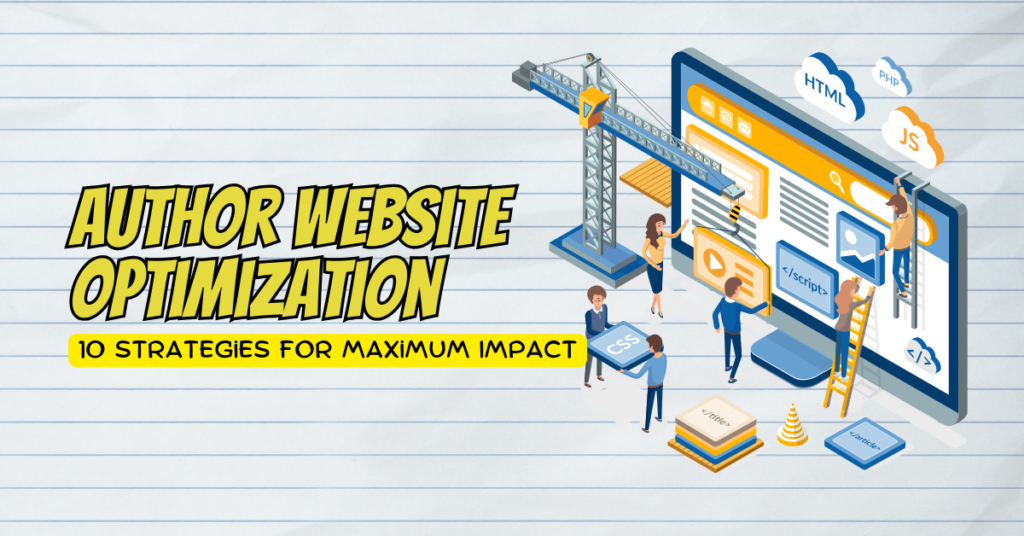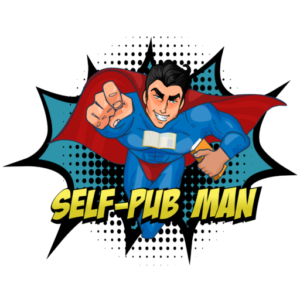In the competitive landscape of the literary world, having an optimized author website is essential for standing out and connecting with your target audience. An optimized website attracts more readers, showcases your writing expertise, and builds your author brand. This article will explore proven strategies to author website optimization for maximum impact, helping you reach a broader audience and elevate your writing career.
Table of Contents
Author Website Optimization Strategies
Craft an Engaging Homepage
Your homepage is the digital front door to your author’s website. Creating a compelling headline and an enticing introduction immediately grabs visitors’ attention. Use high-quality visuals and concise, impactful text to introduce yourself and your work. Include a clear call-to-action (CTA) that directs visitors to explore your books or sign up for your newsletter.
Optimize for Search Engines (SEO)
Implementing effective SEO strategies ensures your website ranks higher in search engine results, leading to increased organic traffic. Conduct keyword research to identify relevant terms readers use to find authors in your genre. Incorporate these keywords into your website’s content, meta tags, and URLs. Additionally, focus on creating valuable, shareable content that attracts backlinks, further boosting your website’s authority.
Showcase Your Books and Portfolio
Create a dedicated page for your books or literary portfolio. Include eye-catching book covers, engaging book descriptions, and links to purchase options. If you have received accolades or awards, feature them prominently to establish your credibility as an author.
Establish an Author Blog
Maintaining an active blog is an excellent way to engage with your audience and demonstrate your writing expertise. Share insights, writing tips, and updates about your upcoming projects. Consistent blogging drives more traffic and positions you as an authoritative figure in your niche.
Offer Freebies and Incentives
Entice visitors to join your email list by offering freebies like short stories, sneak peeks, or exclusive content. Email marketing lets you stay connected with your readers, promoting your latest releases and upcoming events.
Create an Author Bio Page
Craft a captivating author bio that reflects your writing journey, accomplishments, and passions. Personalize your bio to help readers relate to you on a deeper level. Include professional headshots and links to your social media profiles to encourage further engagement.
Integrate Social Media
One strategy for author website optimization is to link your author’s website to your active social media profiles. Social media provides an excellent opportunity to interact with readers, share updates, and amplify your content. Encourage readers to follow and engage with you on various platforms.
Design for Mobile Responsiveness
Ensure your website is mobile-friendly and responsive across different devices. With the growing number of mobile users, a seamless mobile experience is crucial for retaining visitors and reducing bounce rates.
Include Testimonials and Reviews
Feature positive reviews and testimonials from readers, bloggers, and other authors. Social proof enhances your credibility and builds trust with potential readers.
Monitor Website Analytics
Regularly analyze your website’s performance using tools like Google Analytics. Track metrics such as page views, bounce rates, and conversion rates. Use this data to identify improvement areas and further to achieve an author website optimization strategy for your website.

Frequently Asked Questions (FAQs)
Is it Necessary to Have a Personal Domain Name for My Author Website?
While it’s not mandatory, having a personalized domain name (e.g., www.yourname.com) adds a professional touch to your website and makes it easier for readers to remember and find you.
Can I Optimize My Website Without Technical Expertise?
Yes, many website builders offer user-friendly interfaces that allow authors to optimize their websites without extensive technical knowledge. However, hiring a professional web developer can help ensure more advanced optimization.
How Can I Encourage Reader Engagement on My Website?
Encourage reader engagement through comment sections, interactive quizzes, polls, and opportunities for reader-submitted content. Respond promptly to comments and messages to foster a sense of community.
What Content Should I Share on My Author Blog?
Share content related to your writing process, book updates, industry insights, book reviews, and writing tips. Engage with your readers by asking for their input and feedback on various topics.
Should I Offer E-Books or Audiobooks on my Website?
Offering e-books and audiobooks directly on your website can be an excellent way to increase revenue and offer convenience to your readers. Consider using platforms that facilitate easy digital sales and distribution.
How Often Should I Update My Blog?
Consistency is key. Aim to publish new blog posts at least once a week to keep readers engaged and demonstrate your commitment to your craft.
Conclusion
Optimizing your author website is a powerful tool for expanding your reach, engaging with your audience, and solidifying your position as a reputable writer. By implementing these optimization strategies, you can create an online platform that showcases your talent, fosters reader connections, and paves the way for a successful writing career.






